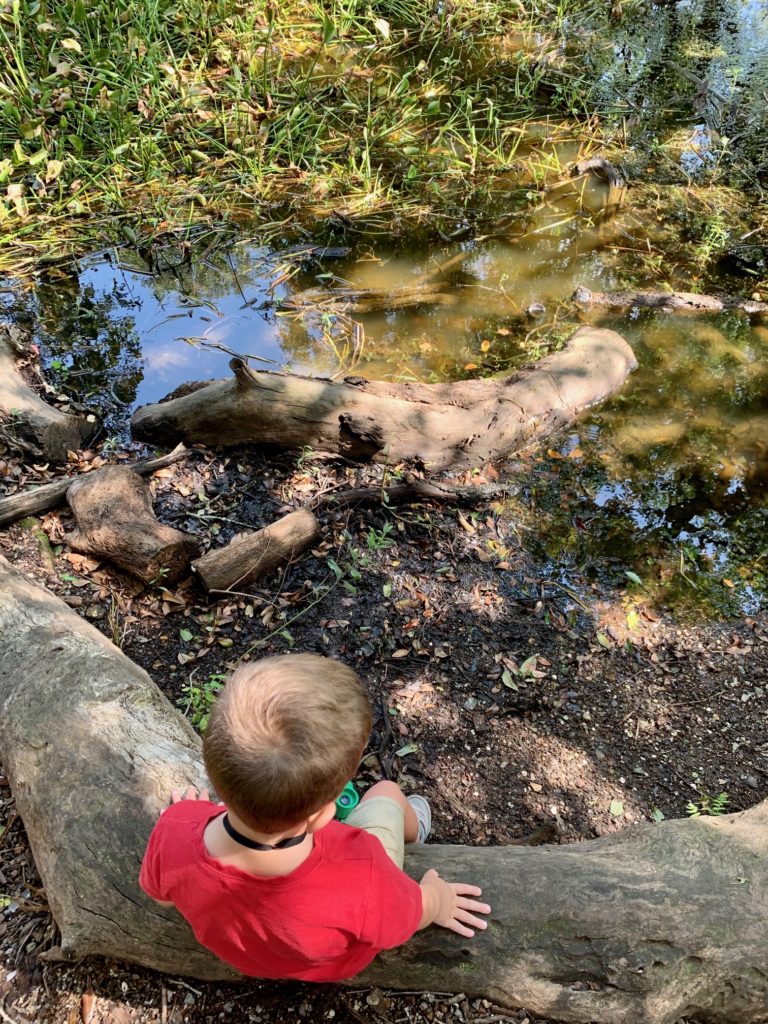Last August, back when the world was still as we knew it, we were driving home from what I knew was our last JCC pool day of the summer. We’d had a great day with perfect weather, plenty of splashing to do, and a good toddler attitude (always a win). I was turning onto our street, and the thought struck me, “That was it. That was the summer he was two.”
Before I had my own child, the various ages and stages seemed sort of like a blur. Babyhood went on for, what, a year? Two? They’re toddlers when they start walking, right? And that continues until when, three and a half, roundabout? When do they start knowing and caring about Santa? When do they lose teeth? It all sort of blurred together for me, a lump sum of sleep training and playground climbing that somehow resulted in kindergarten, at which point I felt like I had a grasp of time and could follow along with a sense of where we were in the program.
It’s funny that I thought this way, given the fact that I’d taught long enough that I could describe in excruciating detail the differences between a junior and a senior in high school, even a senior in August compared to a senior in May. And it’s not like I didn’t have nieces and a nephew whose childhoods I was getting to observe firsthand, seeing them often enough to notice how big they were getting and how their vocabularies were growing but not every day where it would be harder to notice the changes. I just didn’t have a sense of what the passage of time would look like in those early years . . . beyond, of course, the constant reminders that it would all go by so fast.
And it is going by so fast. At least, most of it is. Some of these quarantine weeks have stretched on to the point of insanity, certainly, and there are days that feel like they’ll never end. But I’ve finally got a grasp of how the passage of time in these early years feels, how each season comes with its own group of new skills and challenges, how it’s easy to remember if something happened the Christmas he was two or the Christmas he was three because those Christmases were so different from each other. I no longer hear someone say that three and a half was hardest with their older child but two and a half was hardest with their younger child and wonder to myself, what is she talking about? I get it now; those two ages are completely different from each other and completely different from kid to kid
Earlier this week, I was drafting this post in my head while my three-, soon to be four-year-old was wrapped up in his own imaginative play, and he walked over to me with a toy, and I looked at him and wondered when in the world he became a little kid. There was nothing toddler left about him, no tummy peeking under his shirt, no chunky thigh rolls, no roundness to his cheeks. He was quick and sure on his feet, not pausing to regain his balance or stopping himself on my knee. He started explaining something to me about this particular toy, and the words he used were so big and the sentences he was constructing were complex, and the very nature of what he was explaining was actually a bit complicated. Even his toddler speech was gone.
Not an hour later, my husband asked if it felt like our kid had grown up during the five months we’d been home, and I had to laugh and admit that I’d just been thinking the same thing. I know now that when I think about this time, I’ll think about so many things–the pandemic, the state of the nation at large, the time of my last pregnancy, one that was assisted and challenging and fraught with both worry and relief–but I’ll also think about that span of time when he grew up so much, when he changed from being a toddler to a little kid, when he went from being an only child to a future big brother
That was it. That was the summer he was three
